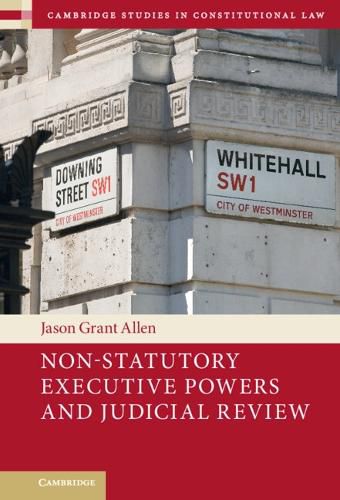Readings Newsletter
Become a Readings Member to make your shopping experience even easier.
Sign in or sign up for free!
You’re not far away from qualifying for FREE standard shipping within Australia
You’ve qualified for FREE standard shipping within Australia
The cart is loading…






That non-statutory executive powers are subject to judicial review is beyond doubt. But current judicial practice challenges prevailing theories of judicial review and raises a host of questions about the nature of official power and action. This is particularly the case for official powers not associated with the Royal Prerogative, which have been argued to comprise a third source of governmental authority. Looking at non-statutory powers directly, rather than incidentally, stirs up the intense but ultimately inconclusive debate about the conceptual basis of judicial review in English law. This provocative book argues that modern judges and scholars have neglected the very concepts necessary to understand the supervisory jurisdiction and that the law has become more complex than it needs to be. If we start from the concept of office and official action, rather than grand ideas about parliamentary sovereignty and the courts, the central questions answer themselves.
$9.00 standard shipping within Australia
FREE standard shipping within Australia for orders over $100.00
Express & International shipping calculated at checkout
That non-statutory executive powers are subject to judicial review is beyond doubt. But current judicial practice challenges prevailing theories of judicial review and raises a host of questions about the nature of official power and action. This is particularly the case for official powers not associated with the Royal Prerogative, which have been argued to comprise a third source of governmental authority. Looking at non-statutory powers directly, rather than incidentally, stirs up the intense but ultimately inconclusive debate about the conceptual basis of judicial review in English law. This provocative book argues that modern judges and scholars have neglected the very concepts necessary to understand the supervisory jurisdiction and that the law has become more complex than it needs to be. If we start from the concept of office and official action, rather than grand ideas about parliamentary sovereignty and the courts, the central questions answer themselves.